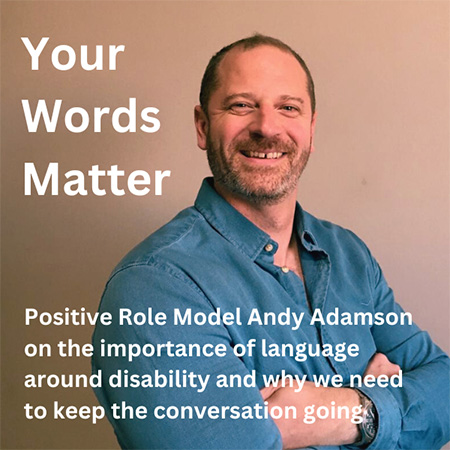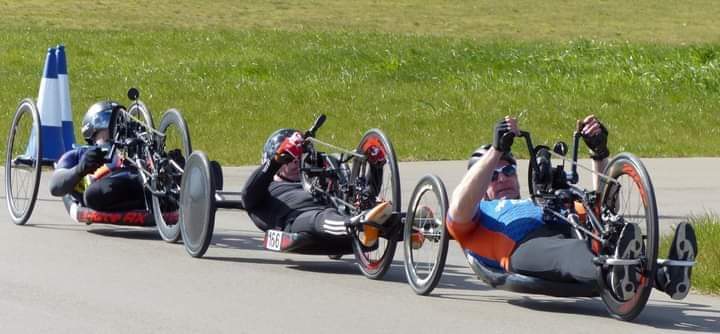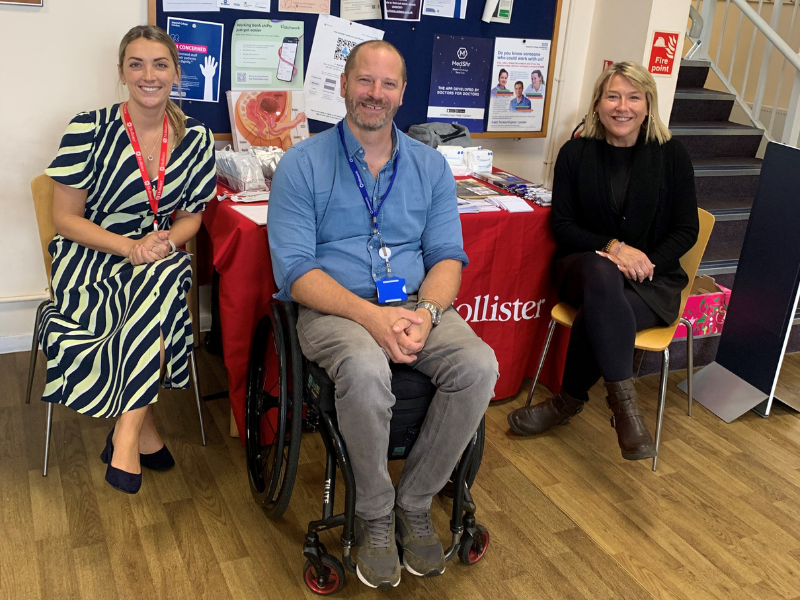
Fittleworth’s Spinal Cord Injury Specialist, Andy Adamson, meets new people daily as part of his job, and being open and available to chat is important. Often, people are drawn to Andy and want to stop and chat. It’s easy to see why – he’s warm and easy to talk to, but the use of language and the way that people speak to him about disability is something he feels strongly about. People regularly ask him about why he uses a wheelchair and want to know (in their choice of words) ‘his story.’
This might happen in bars, on public transport, or somewhere as mundane as the supermarket. Andy is clear that he doesn’t want people to shy away from talking about disability, which is important. Still, he would encourage people to think about the language they use and the questions they ask. The question may be well-intentioned – does it perhaps feel unthinking not to acknowledge a person’s disability? This blog and the videos included will show you a different perspective if you think that way.
“I recently had a conversation with a colleague of mine about the language and words we use to describe our clients, colleagues, stakeholders – anyone really. Language in general is so important. What we say and how we say it can be impactful in any scenario, but particularly for someone who has been through an illness, or an accident resulting in a major impact on their life.

“I see too many news articles that look to sensationalise a story. For example a headline might read, “Person A will now be wheelchair bound, or confined to a wheelchair”, or, “this person suffered (some type of injury)”. The use of these words really frustrates me.
That person is not bound to their chair – they don’t sleep in their chair; they are not strapped to it. The chair is that person’s freedom and how do we know if they are suffering or not? I do appreciate that on occasion this language is used to generate sympathy or sometimes to encourage people to donate to a certain cause, but the effect, the harm those words serve to the person they refer to can be damaging; particularly when someone is adjusting to a new way of life.
“The wheelchair should not be a symbol of disability. A wheelchair is a vehicle to liberation and freedom; a chariot for independence” – Rick Hansen
“A situation I find myself in quite often when out and about, is when meeting someone new, and their first question is, “what happened to you then?” (referring to why I am using a wheelchair). Or they might tell me about a relative, or friend of theirs, who used a wheelchair, but subsequently recovered. These questions or anecdotes come up quite often, and while it’s a good thing that people show an interest, and I have a chance to increase awareness and do my best to educate those so forward in their questioning, there are occasions when I really don’t want to talk about something so personal and traumatic.
“Certainly, for someone coming to terms with a new illness, injury, or way of life, it can be daunting just being out in public, so you can imagine how questions such as these could deeply affect someone’s confidence or independence. All this said it’s important to talk and learn and understand, so don’t be shy of the subject if it does come up; just maybe avoid it being the first thing that comes up.”
Top Tips
1. Keep it neutral and use positive language where possible – for example, don’t use negative describing words such as ‘suffers from’, or ‘victim of’
2. Use first person language – for example: ‘Andy, who uses a wheelchair…’
3. Avoid asking over-personal questions or using words such as “inspirational” or “special” – as you would with anyone.

Further reading
For more guidance on inclusive language visit: Inclusive language: words to use and avoid when writing about disability – GOV.UK (www.gov.uk)
TedEx talk by Yasmin Sheikh “Disability does not mean inability”
TedEx talk by Stella Young (as shown above) “I’m not your inspiration, thank you very much”
 Andy Adamson is Fittleworth’s Spinal Cord Injury (SCI) Specialist. He works closely with the Navigator team and is often the first point of contact for new customers joining our service. If you’d like to know more about Fittleworth’s Navigator team, or if you’d like to find out more about the service and support available to you, visit our Navigator team page on the Fittleworth website, where you’ll be able to learn more about what we do, and if you’d like to, you can also register online to join the service.
Andy Adamson is Fittleworth’s Spinal Cord Injury (SCI) Specialist. He works closely with the Navigator team and is often the first point of contact for new customers joining our service. If you’d like to know more about Fittleworth’s Navigator team, or if you’d like to find out more about the service and support available to you, visit our Navigator team page on the Fittleworth website, where you’ll be able to learn more about what we do, and if you’d like to, you can also register online to join the service.
